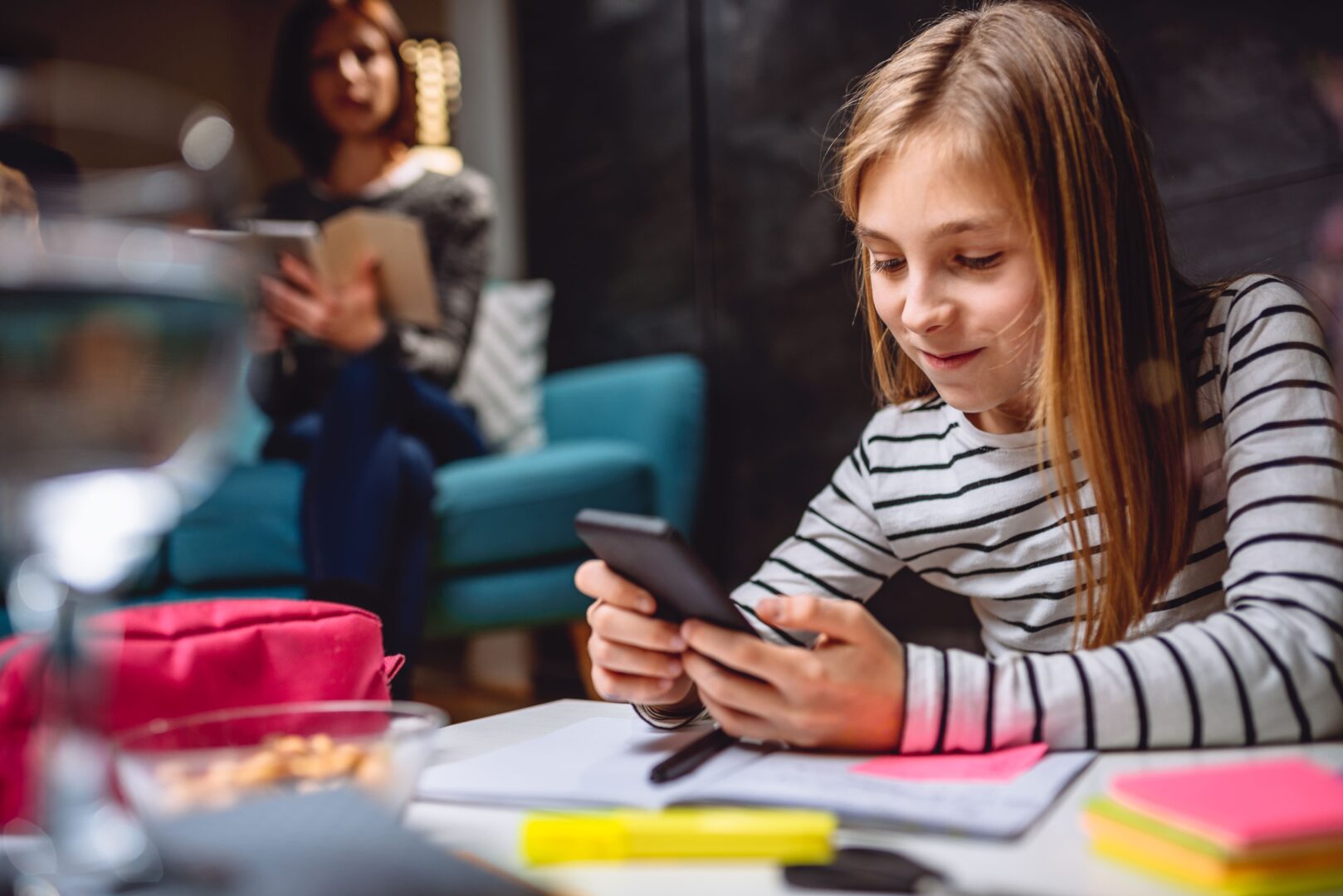Multitasking can help students check off many items on a to-do list. However, doing two or more tasks at the same time affects their ability to do those tasks well.
When students multitask, they are not dividing their attention equally between two tasks. Instead, their focus rapidly shifts between the tasks.
This task-switching actually makes time much less productive—it takes longer to finish work and mistakes are much more likely to happen. This can lead to lower grades on tests and assignments and a drop in academic performance.
Keep reading to learn how multitasking can affect a student’s performance in school and tips for improving focus.
What Is Multitasking & How Does It Affect Learning?
Multitasking can mean many things, including:
- Doing two or more tasks at the same time (such as listening to music while studying)
- Switching back and forth between tasks (such as reading a textbook and checking social media between pages)
- Doing a number of tasks quickly, one after the other (such as answering a practice question, reading another subject’s homework instructions, and then studying one page of notes)
Though it seems like students can get more done if they multitask, research suggests effective multitasking isn’t possible. This is because there is a delay when switching between tasks—the act of switching between two things takes time, breaking focus each time.
The Problem With Students Multitasking
Multitasking while doing homework (or in class) can interfere with a student’s ability to learn and absorb information.
It’s common for students to watch TV, listen to music, text friends, or check social media while doing homework. Instead of effectively juggling the tasks, students’ minds become distracted and can actually reduce productivity by up to 40%.
The distractions that come with multitasking make it hard for students to refocus. Interruptions are especially tough for students who have a hard time paying attention in the first place (like those who struggle with ADD or ADHD).
Just like any other muscle, the brain gets tired. Quickly switching from one thing to another can easily tire it out. When the brain is tired, learning becomes more difficult and mistakes become more common. Over time, this can cause school performance to drop.
Can Multitasking Ever Be Beneficial?
While the benefits of multitasking for students are limited, effective task switching can help improve productivity. When done right, switching tasks can help keep the brain fresh.
If a student is switching tasks frequently (i.e. every few minutes), his or her brain has a difficult time refocusing and can tire easily. However, working too long on one task can have the same effect.
Setting a goal and switching tasks when students have reached that goal makes work more productive and helps students’ brains stay on task longer. It’s the happy medium between rapidly going back and forth between tasks and trying to focus on one task for too long.
5 Tips To Improve Your Child’s Focus (& Effectively Switch Between Tasks)
- Set Aside Chunks Of Time To Work On Specific Tasks
- Put Technology Away
- Work In A Quiet Place
- Get Rid Of Clutter
- Use Breaks Effectively
To manage large to-do lists, create a schedule with your child to organize tasks. Set aside manageable amounts of time for each item on the to-do list, and encourage him or her to stick to using the designated time for that specific task.
Put unneeded technology away until the tasks on the schedule are completed. Have your child leave his or her cell phone or other electronics in another room while working.
It’s easy for your child to get distracted by people and noises around him or her. Find a quiet place for your child to study and avoid areas with lots of distractions (such as the kitchen table or the living room).
It can be hard for your child to focus on a task if the workspace is filled with other assignments and books. Keep the workspace organized and encourage your child to put away all binders, books, and supplies that aren’t needed.
Taking breaks is key to keeping your child’s brain effective and avoid boredom. Encourage your child to keep breaks under 5 minutes to make effective use of time. Remember to keep an eye on the time—taking too long of a break can decrease productivity and make refocusing difficult.
Better Grades Start With Better Time Management Skills
Between a heavy workload, increasing distractions (such as technology), and limited free time, the urge to multitask can be hard for students to avoid.
While it might seem tempting for your child to tackle multiple things at once, help him or her focus on completing one task at a time. By understanding how multitasking affects your child and how to avoid it, he or she can improve productivity and comprehension for success in the classroom.
Check out our other resources for more focus and time management tips:
- 10 Ways To Improve Time Management For Students
- 9 Tips & Activities To Improve Your Child’s Concentration And Focus
- 9 Signs Your Child Might Have A Concentration Problem







